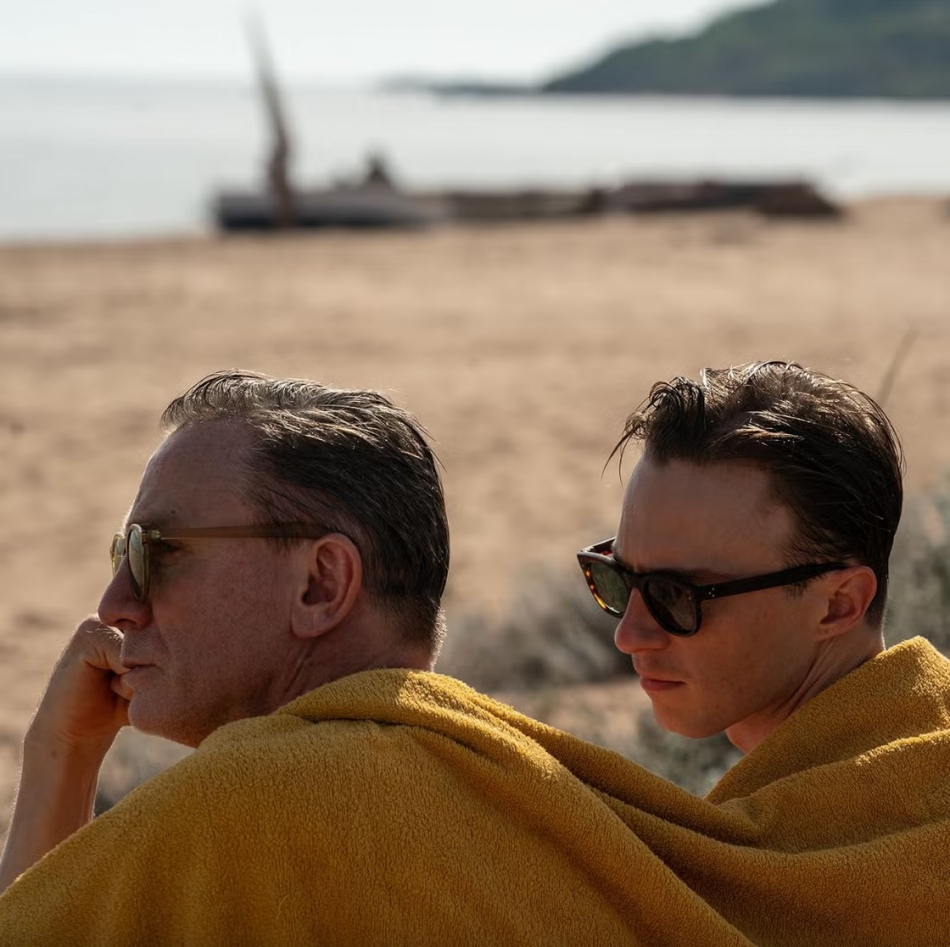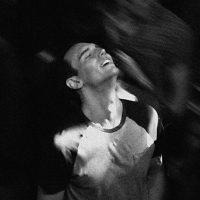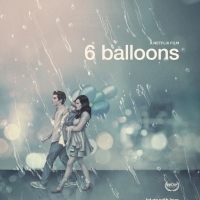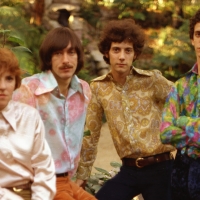Cited as one of the greats from the Beatnik generation, William S Burroughs’ body of work, including Naked Lunch and Junkie, was daring and often controversial. Published later in his life in 1983, his novella Queer was written as an extension of his first book, Junkie. Adapted into film for A24 by director Luca Guadagnino (Call Me By Your Name, Bones and All), the semi-autobiographical Queer stars Daniel Craig as William Lee, an American expat and barfly living in Mexico City in the 1950’s. Having one night stands with various men in town, Lee happens upon a handsome young man named Eugene Allerton (played by Drew Starkey), infatuated by his aloof yet quietly confident nature. The two start a brief love affair that becomes defined by its constant push and pull between devoted Lee and a mostly detached Allerton. Taking liberty in extending Burroughs’ plot, Guadagnino explores more of the men’s relationship as well as Lee’s habitual junk habit and withdrawal. Admittedly not having fully dug into much of Burrough’s work, Guadagnino’s Queer takes some experimental turns but seems to veer a bit too far off the beaten path for it to be convincing as a reshaping of Burrough’s work.
Taking the lead is 007 star Daniel Craig, a brilliant choice as Lee as he wanders the bars and streets of late night Mexico City in search of the next hookup. Swapping demeanors from troubled to smitten to desperate, Craig doesn’t miss a beat in whatever (likely not sober) situation he finds himself in. Drew Starkey’s brooding and introspective personality as Allerton naturally lures Lee into his orbit, with some very sensual displays of intimacy and play behind closed doors. Allerton’s later behavior keeps both Lee and the audience on their toes as to whether he’s actually gay, bisexual or curious as he goes hot and cold with his pursuer and may or may not have a girlfriend on the side, giving depth and intrigue to the film's characters.
Trent Reznor and Atticus Ross’ ambient and dreamy soundscape pervades throughout the film, though Guadagnino unfortunately pivots and chooses highly modern songs for the soundtrack that leave the film's atmosphere amiss. When Nirvana’s “Come As You Are” blasts from the screen as Lee walks the city’s alleys, the 90’s grunge band’s lyrics feel fitting yet out of line with the actual historical landscape. As Queer progresses, pop-electronic tracks from New Order and Omar Apollo fill the space which takes the viewer out of the narrative entirely. Guadagnino also deftly attempts to squeeze in the quick succession of time with Burroughs’ controversial trial of killing his wife, Joan Vollmer, and an unwritten ending with the two men on a wild ayahuasca trip in South America in the final chapter of the film, yet unfortunately these attempts fall flat. Many of the surreal scenes and visuals might stand strong on their own, yet in Queer they ultimately feel forced and slightly contrived. While Queer may not sit quite right with Burroughs’ buffs, Guadagnino still manages to craft a compelling film, namely with its undeniably compelling and convincing cast.





